Home Management is a very practical subject in the WAEC exam that teaches students how to take care of a home and family. It covers everyday skills like cooking, cleaning, child care, managing money, and keeping a healthy lifestyle. These are important things everyone uses in daily life, whether you are planning meals, organizing a space, or caring for others.
The WAEC syllabus for Home Management helps students focus on the right topics for the exam while also preparing them for real-life situations. It is especially useful for students who want to build careers in areas like home economics, caregiving, or hospitality.
If you want to write the WAEC exam in home management, then this article is what you need. This article explains the main topics in the WAEC Home Management Syllabus, how the exam is set up, and offers tips to help students do well.
Goals and Objectives of the Subject
The main aim of Home Management is to test students’ understanding and ability to apply knowledge in everyday situations. Specifically, the WAEC Syllabus for Home Management assesses how well students can:
- Understand basic home and family management principles like setting goals, managing resources, and making good decisions.
- Apply practical skills in caring for the home and family.
- Demonstrate knowledge of good health and hygiene practices.
- Use consumer knowledge wisely when buying goods and managing money.
- Learn self-reliance and develop useful life and entrepreneurial skills for independent living.
Structure of the Exam
The Home Management exam is divided into three parts:
Paper 1 (Objective):
- 50 multiple-choice questions
- 1 hour duration
- Total marks: 50
Paper 2 (Essay):
- 6 essay questions, answer any 4
- 1 hour 15 minutes
- Total marks: 50
Paper 3 (Practical):
- Practical test conducted by a WAEC-appointed examiner
- Duration: 3 hours
- Total marks: 100
WAEC Syllabus for Home Management
The syllabus is divided into several important areas:
Principles of Management
- What Home Management means and the career paths it offers.
- The steps in managing tasks: planning, organizing, doing the work, and evaluating results.
- Why people manage homes the way they do, based on needs, values, goals, and personal motivation.
- Resources at home, both human (time, energy, skills) and material (money, tools, facilities).
- Making smart decisions and managing time and energy effectively.
Family Living
- Types of families: nuclear, extended, monogamous, polygamous, with their pros and cons.
- Stages of family life: starting, raising children, and retirement.
- Roles of each family member and how healthy relationships and communication help the family thrive.
- Courtship and marriage: dating, choosing a life partner, engagement, and traditional and modern wedding ceremonies.
- Responsible parenting: family planning, pregnancy care, childbirth, child care, and parenting duties.
Feeding the Family
- Understanding food groups and their nutrients.
- Nutritional needs of different age groups and health conditions.
- Food preservation, meal planning, food hygiene, and kitchen safety.
- Buying food wisely, preparing and serving meals, snacks, and drinks.
- Table setting, food presentation, and hosting guests.
Clothing and Household Linen
- Choosing clothes and household fabrics.
- Understanding how textiles are made (weaving, knitting, etc.).
- Planning and caring for a wardrobe.
- Using sewing tools and making simple garment repairs.
- Proper laundry practices, stain removal, and care for special clothing.
Housing the Family
- Types and styles of homes (bungalow, duplex, etc.).
- Ways to acquire a home: renting, buying, inheritance, etc.
- Factors to consider when choosing a house (location, ventilation, cost).
- Setting up a home with appropriate furniture and equipment.
- Basics of interior decoration using color, texture, and design principles.
- Home cleaning methods, tools, and care of different surfaces and furnishings.
- Safety in the home, common accidents, first aid, sanitation, waste disposal, and pest control.
Wealth Creation and Money Management
- Entrepreneurship: what it means, its importance, and skills needed (creativity, communication, management).
- Types of small businesses you can start (hairdressing, catering, tailoring, etc.).
- Managing money wisely: budgeting, saving, and investing.
- Understanding capital markets, shares, and other investment opportunities.
Consumer Education
- Knowing your rights and responsibilities as a buyer.
- Getting information before buying and learning to make smart choices.
- Laws and agencies that protect consumers.
- How to shop wisely, avoid waste, and choose environmentally friendly products.
Recommended Textbooks
To prepare well for the WAEC exam in Home Management, here are the WAEC recommended textbooks:
- Home Management by R.O. Johnson, A. Akingbehin, and J. Mifie – Longman Publishers
- Home Management for Secondary Schools by Enid O’Reilly, Wright & Lillian Adesimi-Davies – Evans Brothers
- Home Management for Secondary Schools 1-3 by Mary Edna Aufani Joe, Oby Eyisi et al. – University Press
- Home Management for Secondary Schools (Q & A Series) by Elizabeth Anyakoha – FEP Publishers
Conclusion
Home Management is not just a school subject, but it is a life skill. It helps you become more responsible, organized, and independent in managing yourself, your family, and your future home. Studying this syllabus thoroughly will not only help you pass your WAEC exam but also prepare you for adulthood. We hope you found this article helpful. Keep visiting this page for more updates on related topics, and if you have any questions, do not hesitate to visit the comment section for a prompt response.
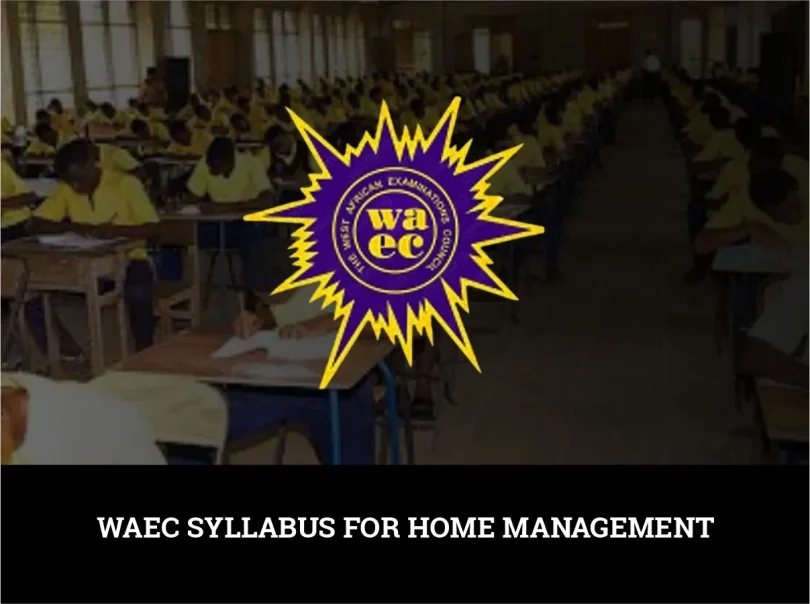
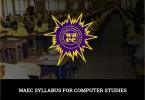
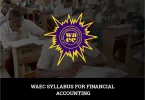


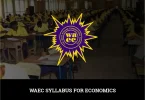
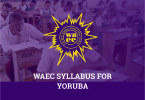
Leave a Comment